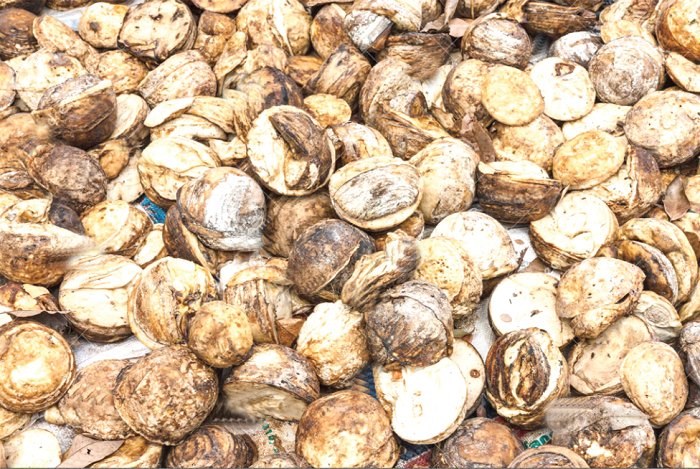
Export of raw latex; A drawback on job creation
We cannot disguise the fact that one major challenge facing our motherland, Ghana, is the high rate of unemployment. This fact is indisputable. Unemployment, especially among the youth, should be a major concern to any Ghanaian who does not want to be a spectator but a citizen (to echo the President’s inaugural words).
Any parent who has invested in the education of his/her children to a very high level and finds them still dependent on the parental budget for sustenance, because of lack of jobs, can attest to how unpleasant such a predicament is.
The high rate of unemployment becomes even more heart-wrenching when one considers the fact that more than 150,000 graduates are reportedly produced from our universities and tertiary institutions annually. That means, all things being equal, we should be able to create a near-equivalent number of jobs in both the private and public sectors of the economy if we are to solve the unemployment problem.
The government’s “one-district, one-factory” and “planting for food and jobs” programmes are both meant to assuage the unemployment problem.
However, as the government rolls out job-creation programmes, we should not lose sight of the actions by some of our citizens that invariably literally constitute a reactionary force on the path of progress.
One such activity that does not augur well for the job-creation efforts of the government is the export of raw latex, technically known as cup lumps, by individuals.
I am writing this article not because I worked for 11 years in a very senior position at the Ghana Rubber Estates Limited (GREL) in the Western Region, but as a concerned citizen of Ghana and also as a rubber out-grower.
{loadmodule mod_banners,Nativead1}
Worrisome development
There is a very disturbing development which the government must be made aware of and the appropriate decisions taken, and urgently too. Over the past one and half years some individuals have established sale and buying points for the purchase of raw latex (cup lumps) from some rubber out-growers, which is in turn sold to some buyers for export. The sale points are increasing in a very worrying manner.
What this new, disturbing phenomenon means is that the cup lumps (latex), which for the past 40 years have been processed for export by GREL in Ghana, are now being exported for processing outside Ghana. The economic and social ramifications of this development are many.
First, this activity will create jobs for the citizens of those countries where the cup lumps are exported to. Conversely, the processing factory here in Ghana is going to be deprived of the raw material for processing and the effect on job generation for Ghanaians is huge. That is unacceptable and counter-productive to say the least.
Secondly, no value is added to the latex when it is exported in its raw state. That constitutes huge export revenue loss for the state. Isn’t it anachronistic that in an economic era when we are striving to add value to our raw materials, we are now allowing people to export raw rubber?
{loadmodule mod_banners,Nativead1}
A look into the past
In the olden days, firms used to export logs of timber. That practice was banned and all timber logs are now being processed in Ghana for employment and revenue generation. Fast forward to 2016 and 2017, we have gone back to export an economic raw material. It is mind-boggling.
For those of us in the natural rubber industry, we can foresee that the theft of latex from out-grower farms shall be on the ascendancy. This is because the buyers cannot have any mechanism to determine the quantity of rubber being offered for sale by a farmer as against the size of the seller’s farm. This will lead to chaos in the natural rubber industry.
On a broader scale, let us remind ourselves that the government of the Republic of Ghana has 25 per cent shares in the GREL. Any loss in revenue to GREL affects its overall profits and consequently the dividend to be paid to the government of Ghana for development.
We should also note that an expansion in the processing factory of GREL has a multiplier effect in terms of the number of households that depends on the wages and salaries generated monthly and the effect on the local economy where GREL operates and where there are out-growers.
Competition is good. I would not have been worried if the sale of the latex (cup lumps) was to another company or companies that would also process the latex locally. That development will inure to the benefit of out-growers because an out-grower can sell to the buyer with a better price. But for as long as the latex is exported in its raw state, it should not be entertained.
Most of the farmers who sell their cup lumps to the agents for export may not know the harm that activity is causing to job-creation efforts in Ghana. Education is, therefore, needed for them to be aware of the detriment their actions are causing the state.
Rubber farming is a major mainstay of the economy of the Western Region and we need to protect the industry. There is huge potential in the sector. We should not sit idle for the industry to be destroyed. A stitch in time saves nine!
The writer is a rubber out-grower and a human resource / labour relations consultant.
